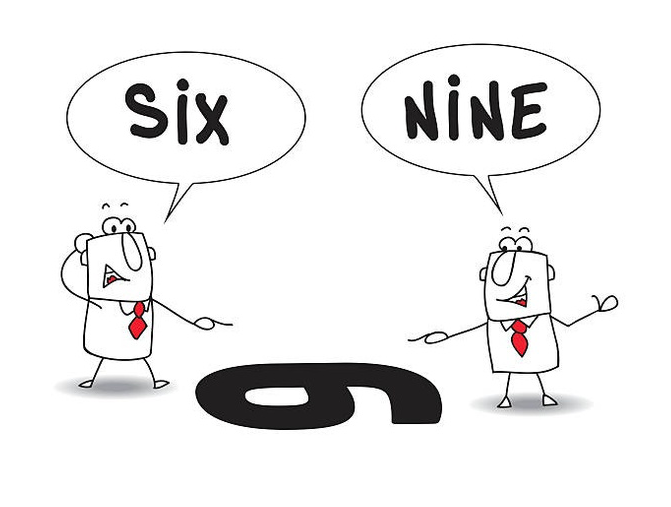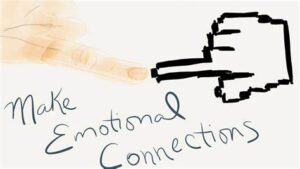Emotional Safety
As holiday season approaches, it is common to feel some anxiety about family gatherings. In this article you will find information and tools to help you understand and avoid unnecessary arguments and created connected relationships.
First, let’s distinguish conflict from an argument: conflict is a difference in interests and opinions, which is natural and cannot be avoided. An argument is a defensive approach in dealing with such differences and often a futile attempt towards conflict resolution.
Healthy tools of conflict resolution include:
- emotionally safe environment
- negotiation skills
- active listening
- win-win solutions
- effective communication skills
Conflict resolved in a healthy manner tends to enhance intimacy and connection. Unfair fighting and arguments tends to increase resentment. When we fight in a manner that makes us feel angry, hurt and betrayed, what follows is LACK OF SAFETY. Not feeling safe is going to affect our trust, thus destabilizing the relationships. When we feel unsafe, our autonomic nervous system is WIRED to react. Understanding how our nervous system reacts will help you tame your urge to fight.
Understanding Our Autonomic Nervous System
The secret to connected happy family is EMOTIONAL SAFETY. When we feel emotionally safe, our autonomous nervus system is relaxed – the VENTRAL nervous system is activated; we are geared towards socializing, empathy, compassion, acceptance, and understanding – we experience sense of belonging!
When we do not feel emotionally safe, SYMPATHETIC nervous system (fight or flight response) is activated and we become reactive, mobilized to attack and defend. If sympathetic system fails to diverge the perceived threat, what follows is activation of DORSAL nervus system, and as a result, we shut down, we disconnect, which further increases feeling unsafe.
Conclusion: engage in communication style that activate your ventral vagus nerve (connectedness) and refrain from communication style that activates your sympathetic (fight or flight) and/or dorsal nerve (shut down/disconnect).
Behaviors that induce defensiveness
There are plethora of behaviors that are anxiety producing. Here are some of the unfair fighting strategies that activate sympathetic and dorsal nervous system that we should avoid:
Character Assassination
In this fighting tactic you move quickly from the issue at hand to questioning the other person’s personality. You interpret the other person’s shortcomings as evidence of bad character or family traits.
Brown Bagging (or Kitchen Sinking)
In this tactic you try to list as many problems as possible in as much detail as possible. You don’t stick to the original issue, but rather throw in all the problems you can think of. You also don’t limit yourself to the immediate present.
Overgeneralize
This dirty fighting tactic uses words like “always” and “never.” For example, “You are always late. or “You never cared about the kids.” This is likely to distract the other person into discussing the over-generalization rather than the issues.
Cross-Complain
In this tactic you respond to any complaint the other raises with one of your own. If done properly, you can create a complete stalemate by balancing complaint against complaint forever.
Blame
In this tactic you make it clear that the fault lies entirely with them and once again, you are simply the innocent victim. You don’t admit that your behavior plays any part in the difficulty. You make sure that they know that they must change first because it is really all their fault.
List Injustices
In this tactic you recite every slight, injustice or inequity you have experienced in the relationship. By doing this you gain a great feeling of being morally justified.
Label
This dirty fighting tactic applies a negative label to the other person to create the impression that they are totally at fault. Psychological labels (childish, neurotic, selfish, insecure, crazy, borderline, bi-polar) are particularly effective in obscuring issues where you may be vulnerable.
Use relatives
This dirty fighting tactic accuses someone of being just like a relative – “You are just like your father.” Or a variation is using the relatives as backup for your opinion. “Your mother agrees that you aren’t a good parent.”
Volcano
Blow off steam with a series of name-calling, incoherent sentences. Be so forceful you nearly singe your listener’s eyebrows.
Witness for the Prosecution
In this tactic you quote from friends or family who share your opinion and would say so if only they were present.
Behaviors that work
There are only two behavior choices that promote emotional safety:
1) Validation.

Validation – is a communication that the information being received makes sense. To validate someone’s message does not mean that you agree with their point of view or that it reflects your subjective experience. It merely recognizes the fact that in every situation, no objective view is possible. In any communication between two persons, there are always two points of view, and every report of any experience is an interpretation that is the truth of each person. The process of validation affirms the other person and increases trust and closeness.
It indicates that you can see the information from their point of view and can accept that it has validity- that it is true for your partner. Validation is a temporary suspension or transcendence of your point of view and allows your partner’s experience to have its own reality.
“I can see that…”
“It makes sense to me that you would think or feel that…”
“I can understand that…”
Such phrases convey to the other person that his or her subjective experience is not crazy, that it has its own logic and that it is a valid way of looking at things.
2) Empathy.

Empathy – is the process of reflecting or imagining the feelings a person is experiencing about the event or the situation being reported. The deep level of communication attempts to recognize, reach into, the emotions of another person.
Samples phrases that express empathy:
“I imagine you must feel ________.”
“It sucks that you have to go through this.”
HOW TO PUT THIS IN ACTION:
- Accept that you cannot NOT have relationships – you are either in connected relationship or in a disconnected one.
- Accept that all aggression leads to activation of sympathetic and/or dorsal nervous system (fight, flight or freeze response).
- Emotional safety is the priority – not being right. When left with a choice of being right or being kind, choose kind. Commit to Zero Negativity pledge!
- Validation and Empathy are the two means to emotional safety. And emotional safety is the prerequisite to feeling connected. Other words for connectedness are intimacy, love, unconditional positive regard, loving kindness, compassion.
- Practice using validation and empathy – it is not as easy as it sounds! Practicing effective communication eventually leads to making it a habit.


